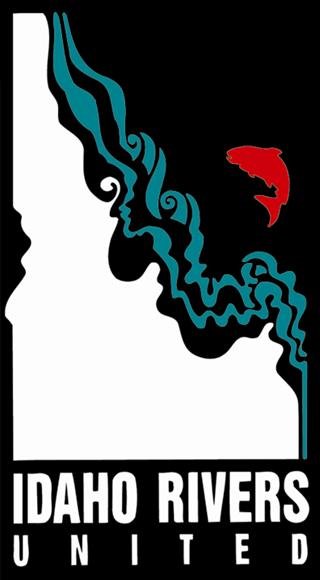IRU's first River Fellow, Tess McEnroe, and the future of IRU's Guide Education
Hello river people!
My name is Tess McEnroe and I’m excited to introduce myself on the “Currently,” and to be a part of Idaho Rivers United this year. Besides being a river lover, art teacher and currently an environmental education graduate student, I am also honored to be working as the first “River Fellow” at IRU.
Idaho rivers changed my Minnesotan childhood at age 9 on my first rafting trip, and year after year they continue to be a place I return to for rejuvenation, healing and joy. Working and playing as a river guide for 15 years has given me the opportunity to share wild places, and why they are worth protecting, with many people. I take great pride in these experiences, and am humbled by the Frank Church River of No Return Wilderness. The “church” as many of us call it, is a vast home to not only some incredible rivers, but also as we know – the fish.
And although the river may be our greatest teacher, as river enthusiasts, guides, stewards, fisherpeople, paddlers, and everything in between, I believe we have a massive opportunity to educate the public and our own communities about the places we return to year after year; these rivers that steal our hearts for good reason.
Photo source: https://serc.carleton.edu/details/images/31439.html
As a fellow at IRU, I am working with a team to design a free, remote curriculum focusing on salmon and steelhead conservation, specifically targeted to the Middle Fork of the Salmon River. This project, called the “Wild & Scenic Stewardship Guide Education Program,” is an effort to launch a continuing education program for the guiding community, and encourage guides to not only continue to build their own knowledge base and interpretive skills, but also to help educate their clients about salmon and steelhead conservation in the Middle Fork drainage and throughout the Pacific Northwest.
Salmon and steelhead are truly incredible species, and the Middle Fork is home to the longest run in the lower 48 states, reaching over 900 miles in the Columbia River basin. I believe their resilience to survive, despite the threats and literal hurdles in life (dams!), sets an example for us as humans. Their life’s journey to spawn and return to their birthplace takes tenacity, hard work and sacrifice. As a keystone species, these fish impact entire ecosystems and watersheds, as well as economic industry. As humans, I believe that we have the mandatory responsibility to respect and be stewards for these wild rivers, species and acknowledge the land of Indigenous people who call them home.
However, their numbers have rapidly decreased in recent years and they are not only endangered, but a few already extinct. According to the World Wildlife Fund’s 2020 report, two-thirds of the world’s wildlife has become extinct since 1970, due to human activity. That is devastating. There is currently positive momentum and policy on the table to remove the lower four Snake River dams, which are a major culprit in heating the river temperatures, making it basically impossible for these fish to exist. We can help change that!
The goal of this accessible and equitable education project is to increase environmental literacy, awareness and further action in protecting wild rivers and fish. The design of 2020’s platform will be online, and regarding COVID-19, we hope this project will support the guiding community during a time of seasonal transition, and is intentionally going live in the off-season to give us a professional development opportunity, as well as continue to build community. (Structure will vary from independent, remote work to live discussion meetings, and ideally a few webinars with guest speakers. Each participant will be provided with laminated resource materials to take on the river next season as well. We also understand that we are all at different levels on this topic, and you’ll have the opportunity to challenge yourself accordingly).
This project is in partnership with a grant through the River Network and the US Forest Service, and if you aren’t a river guide, we would still love your participation, so please feel free to sign up. Completion of the course will culminate in an action piece, such as a comment session or letter to a government agency, to use your voice to be a salmon and steelhead conservation ambassador. Participants will be awarded with the certificate from IRU,” along with a river-themed gift. No matter where you stand politically, I believe this curriculum can unite us all in the fact that we want these places and fish to remain and thrive forever. Salmon and steelhead conservation are a huge part of that endeavor.
If you’d like to learn more, have suggestions about lesson topics, or chat about anything fish or river story related, I’d love to hear from you and connect. Please feel free to reach out at tess@idahorivers.org.
Finally, I want to remind us all that our voice matters. So tell your friends, sign up together, and have fun! I hope to see some familiar names and meet more wonderful people through this project. I’m honored to be a part of this community and look forward to continuing to learn with you all. Thank you for your support.
Here’s to wild rivers, wild fish, and wild hearts!
Sincerely,
Tess McEnroe
This project was made possible by grant funding through the River Network. Read more about the grant here.



